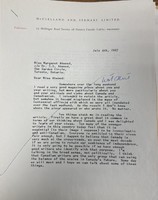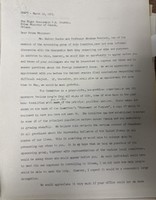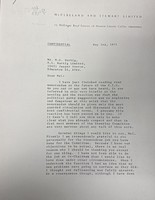Canadian Nationalism
Throughout the late 1960s and early 1970s, Jack McClelland became increasingly concerned over the state Canada was in. In particular, he was concerned over the increasing dominance of American corporations in what he considered vital sections of the Canadian economy. McClelland thought that American corporations would never publish Canadian books and because of this he began using McClelland & Stewart as a means of publishing Canadian literature. In 1970, McClelland joined the Committee for an Independent Canada as a Co-Chairman in order to help to ensure the independence of Canada’s economy. In 1971, McClelland became the Chair of the Committe for an Independent Canada (CIC) and began to steer it on a new course.



